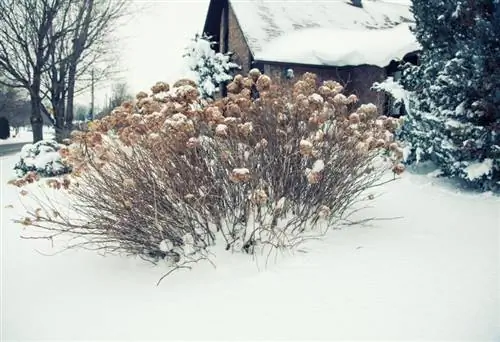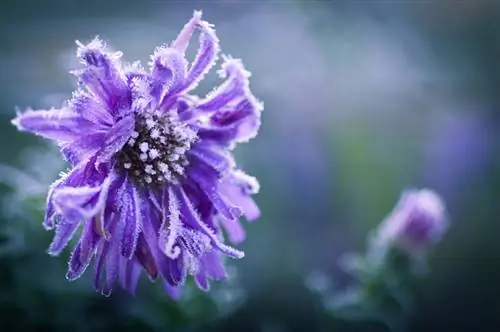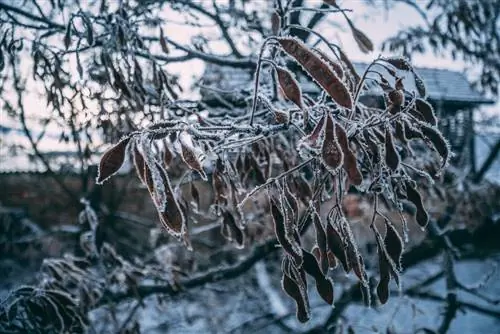- Author admin [email protected].
- Public 2023-12-16 16:46.
- Last modified 2025-06-01 06:02.
Garden amaryllis trump their indoor counterparts with their majestic habit and robust constitution. However, the tropical flower beauties are not completely hardy. Since the Crinum powellii increases in flowers over the years, the effort of overwintering is worth it. Read here how multi-year cultivation works.

Are garden amaryllis hardy and how do I overwinter them?
Garden amaryllis are not completely hardy; they can only tolerate temperatures down to -1 degrees Celsius for a short time. To overwinter, the bulbs should be dug up before the first frost, the leaves removed and stored in a cool, dark place before being replanted in spring.
Temperature minimum is - 1 degree Celsius
Don't be misled by big promises from retailers. The shippers explicitly declare any plant that can survive down to 0 degrees Celsius to be hardy. In fact, the garden amaryllis only tolerates light frost for a short time and finally becomes limp at temperatures below -1 degree Celsius.
This is how the garden amaryllis gets through the winter he althy
The garden amaryllis only becomes truly beautiful over the years. After the bulb flower delighted us with 3 to 4 flowers in the first summer, well-established specimens boast up to 15 individual flowers. As if that weren't enough, a mother onion eagerly produces daughter onions for numerous offspring at no cost. Reason enough to accompany a hooked lily through the cold season with these precautions:
- Get the onions out of the ground before the first frost
- Now finally cut off the fallen leaves
- Store in a cool, dark basement on an airy wooden shelf or in dry sand
- Replant the overwintered flower bulbs in March/April of the following year
Only in wine-growing regions with mild winters is there a chance of overwintering undamaged in the bed. In this case, cover the planting site with a high layer of leaves secured with brushwood or wire mesh. Leave the withered leaves on the bulb until spring as a natural winter protection.
Tip
All amaryllis plants are highly poisonous. These include not only classics such as the Amaryllis Belladonna, but also the garden amaryllis, hook lily and the knight's star. The plants are permeated with toxic alkaloids, which, when consumed, cause severe symptoms of poisoning, such as vomiting, cramps and shortness of breath.






